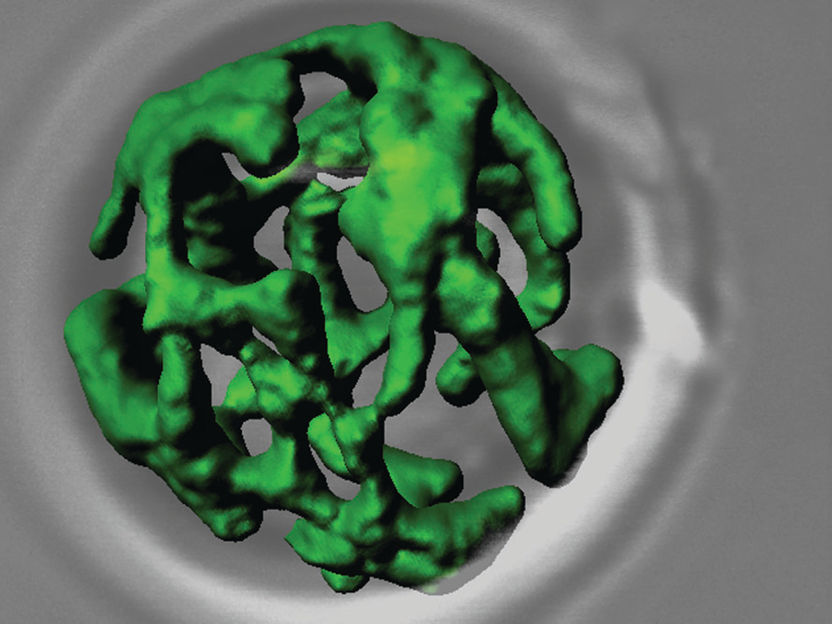Stress in the Powerhouse of the Cell
Researchers discover a new principle – how cells protect themselves from mitochondrial defects
Advertisement
cells need powerhouses known as mitochondria to utilize the energy stored in our food. Most of the proteins required for this powerhouse function are encoded in the nucleus and transported into the mitochondria after they have been synthesized in the cytosol. Signal sequences are needed to allow the protein to enter the mitochondria. Once the protein has arrived there, the signal sequences are, however, removed. Up until now, researchers did not fully understand the importance of this removal of signal sequences. It was also unclear why flawed removal leads to a number of illnesses, such as diseases of the heart or brain. Together with her working group, Dr. Nora Vögtle of the Institute of Biochemistry and Molecular Biology of the University of Freiburg has discovered that errors in the removal of signal sequences lead to an aggregation of these proteins so that they clump together inside the mitochondria.

The net-like structure of green colored mitochondria from the baker's yeast model organism.
AG Meisinger
The aggregation observed by the researchers could cause the cell powerhouses to stop working, but all organisms require this activity for survival. To counteract these defects the cells execute what the researchers call a protective stress response, which enables mitochondria to maintain their key functions. By means of this stress response, cells such as baker’s yeast – the model organism used to carry out the researchers’ experiments – survive. Along with doctoral candidate and lead author of the study, Daniel Poveda-Huertes, Vögtle also discovered that the regulation of many different genes is happening in the cell nucleus. What is more, the researchers found out that a transcription factor normally found in the nucleus was surprisingly transported into the mitochondria, where the expression of genetic information was enhanced. Only through this mechanism could the mitochondria ensure cell survival by maintaining generation of energy under these stressful conditions. This completely novel principle in the stress response of cells, explains Vögtle, is probably the earliest reaction that has been detected up until now. She says, “That’s the cell’s first line of defense when stress appears in its powerhouses.”
Original publication
Poveda-Huertes, D., Matic, S., Marada, A., Habernig, L., Licheva, M., Myketin, L., Gilsbach, R., Tosal-Castano, S., Papinski, D., Mulica, P., Kretz, O., Kücükkose, C., Taskin A.A., Hein, L., Kraft, C., Büttner, S., Meisinger, C., and Vögtle, F.N.; "An early mtUPR: Redistribution of the nuclear transcription factor Rox1 to mitochondria protects against intramitochondrial proteotoxic aggregates"; Molecular Cell; 2019






















































